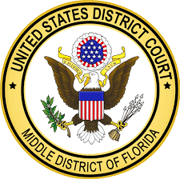Understanding Personal Injury Claims in Florida: A Comprehensive Guide

Navigating the complex world of personal injury claims in Florida can be overwhelming. This comprehensive guide will provide you with the knowledge and resources you need to understand the process and protect your rights.
3 Types of Personal Injury Claims in Florida
Personal injury claims in Florida can arise from various situations, such as car accidents, slip and falls, medical malpractice, and more.
1. Car Accidents
Car accident claims involve seeking compensation for injuries sustained in motor vehicle accidents, including collisions with other vehicles, pedestrians, or stationary objects.
2. Slip & Falls
Slip and fall claims occur when someone is injured due to a hazardous condition on someone else's property, such as a wet floor or uneven walkway.
3. Medical Malpractice
Medical malpractice claims involve injuries caused by the negligence or misconduct of healthcare professionals, such as doctors, nurses, or hospitals.
These are just a few examples of the types of personal injury claims that can arise in Florida. Each case is unique and requires careful evaluation to determine the appropriate legal action.
5 Key Steps to Take After Suffering a Personal Injury
After suffering a personal injury in Florida, it is crucial to take certain steps to protect your rights and maximize your chances of receiving fair compensation.
- Seek medical attention immediately: Your health and well-being should be your top priority. Even if your injuries seem minor, it is essential to get a thorough medical evaluation to document your condition.
- Report the incident: If your injury occurred on someone else's property or as a result of someone else's negligence, report the incident to the appropriate authorities or property owner. This documentation can be valuable later on.
- Gather evidence: Take photos of the accident scene, your injuries, and any other relevant evidence. Collect contact information from any witnesses who saw what happened.
- Consult with a personal injury lawyer: A skilled attorney can guide you through the legal process, help gather evidence, and negotiate with insurance companies on your behalf.
- File a personal injury claim: Your attorney will assist you in filing a personal injury claim within the statute of limitations. This legal action initiates the process of seeking compensation for your damages.
These key steps can significantly impact the outcome of your personal injury claim. It is crucial to take them promptly and seek professional legal advice to ensure your rights are protected.
Understanding the Statute of Limitations in Florida
The statute of limitations refers to the time limit within which a person must file a lawsuit after suffering a personal injury. In Florida, the statute of limitations for most personal injury claims is two years.
It is important to understand that if you fail to file a lawsuit within the specified time frame, you may lose your right to seek compensation for your injuries.
However, certain types of claims, such as medical malpractice cases, have different deadlines. It is crucial to consult with an experienced personal injury attorney to determine the specific statute of limitations that applies to your case.
By understanding and adhering to the statute of limitations, you can ensure that your claim is filed within the required time period and preserve your right to pursue compensation for your damages.
Factors That Can Impact Your Personal Injury Claim
Several factors can impact the outcome and value of your personal injury claim in Florida. It is important to be aware of these factors and how they may influence your case.
- Severity of injuries: The extent and severity of your injuries will play a significant role in determining the compensation you may be entitled to. Severe injuries that result in long-term disability or significant pain and suffering may warrant higher compensation.
- Evidence and documentation: The strength of the evidence and documentation you have to support your claim can greatly impact its success. This includes medical records, accident reports, witness statements, and any other relevant evidence.
- Contributory negligence: Florida follows a comparative negligence rule, which means that if you are partially at fault for the accident that caused your injuries, your compensation may be reduced proportionately. It is essential to establish liability and minimize any potential fault on your part.
- Insurance coverage: The insurance policies of the at-fault party or parties involved can also affect your claim. If the responsible party has limited insurance coverage, it may impact the amount of compensation available to you.
These are just a few examples of the factors that can impact your personal injury claim. Working with an experienced personal injury attorney can help you navigate these complexities and ensure you receive the maximum compensation you deserve.
How to Choose the Right Personal Injury Lawyer in Florida
Selecting the right personal injury lawyer is crucial to the success of your claim. Here are some factors to consider when choosing an attorney in Florida:
- Experience and expertise: Look for a lawyer who specializes in personal injury law and has extensive experience handling cases similar to yours. They should have a track record of success in obtaining favorable outcomes for their clients.
- Reputation and reviews: Research the lawyer's reputation and read reviews from past clients. Look for positive testimonials and feedback that highlight their professionalism, communication skills, and dedication to client satisfaction.
- Resources and support: A reputable personal injury lawyer should have the necessary resources and support staff to handle your case effectively. This includes access to medical experts, investigators, and other professionals who can strengthen your claim.
- Communication and accessibility: It is essential to choose a lawyer who communicates clearly and promptly. They should be accessible to answer your questions, provide updates on your case, and address any concerns you may have.
- Fee structure: Discuss the lawyer's fee structure upfront to ensure it aligns with your budget and expectations. Many personal injury attorneys work on a contingency fee basis, meaning they only get paid if they win your case.
By considering these factors and meeting with potential attorneys for a consultation, you can make an informed decision and choose the right personal injury lawyer to represent your interests.





